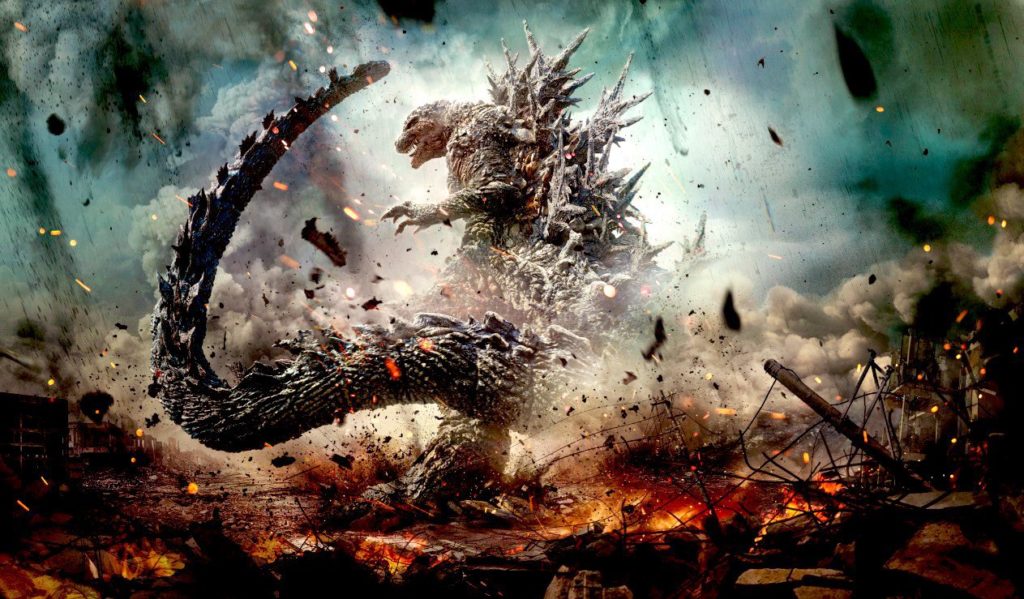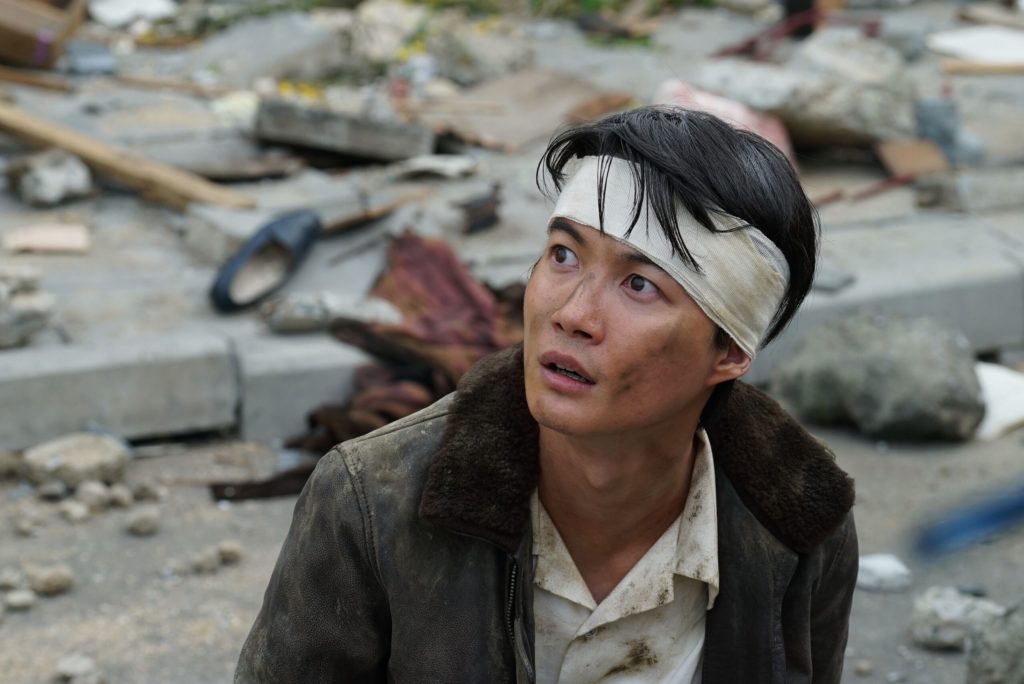GODZILLA Minus One: Taking the Monster Back to Its Roots
Coming 70 years after the original 1954 Godzilla–one of the greatest monster movies ever made–Takashi Yamazaki’s Godzilla Minus One takes the Kaiju back to its post-World War II roots. Review by Bren Swogger.

Over the last 70 years, Godzilla has seen an absolute barrage of sequels, reboots and remakes. It’s a gargantuan franchise for a gargantuan monster, but unfortunately, most of the films in its long history lost site of exactly what made the original 1954 film such a masterpiece.
It wasn’t how badass Godzilla was (though Godzilla is absolutely fucking badass). It wasn’t the destruction or the Kaiju madness. What made Godzilla (1954) such an important and impactful film was its commentary on nuclear warfare.
Following the devastation of the United States’ nuclear attacks on Hiroshima and Nagasaki, Godzilla put the unholy power of the atom bomb into the body of a giant lizard. Awakened by nuclear testing, Godzilla’s rampage of Japan in the film symbolized the devastating impact of nuclear weapons, and effectively conveyed Japan’s collective trauma—the fears, the consequences, and the ethical considerations—associated with nuclear technology.
It’s what so many of the sequels missed, instead only going for the action and the spectacle rather than focusing on what really counted. But fortunately, the latest installation in the franchise, Takashi Yamazaki’s Godzilla Minus One, knows exactly where it comes from. It knows what counts. And it takes the heart of the original, and focuses its lens back on the root of the franchise.
Much like the original flagstone film, Minus One takes place in post-World War II Japan, but instead of taking a grand scope look at the devastation, where Minus One succeeds most is in its sharp character focus.

We follow Koichi Shikishima, a kamikaze pilot who survived the war, and constantly deals with the pressure, the guilt, and the trauma of knowing he did not perform his duty while so many of those around him perished. Through his eyes, we experience the PTSD that comes from war survival, the love and hope in found family, and the absolute devastation of watching a crumbling country post-war.
It’s a powerful portrait even without Godzilla in the picture. But when the monster does show up, it packs an even bigger punch. Godzilla in this movie is terrifying. In many previous Godzilla films, I find myself rooting for the beast as it destroys everything in its path. But that is certainly not the case with Minus One. Every moment Godzilla is on the screen is wracked with tension.
There is a moment in this film that solidified to me that they got Godzilla right, fully capturing just how utterly devastating an atomic attack is. In that moment, the theater was absolutely silent. And Godzilla stood, tall, powerful, the image of complete domination amongst the rubble.
For a monster film to pack such a punch, to ride its emotional beats with such grace, and to completely tear apart the viewer in the way Minus One did, is something only Godzilla can do.
Though the franchise’s 70 years of history is truly wrought with duds and missteps, Minus One is certainly not one of them. Instead, this ode to the 1954 film represents everything that the original masterpiece stood for. 70 years later, and Minus One stands tall and proud as the best of the franchise in seven decades of Godzilla’s reign.
Godzilla Minus One opens in theaters Friday, December 1st.
Bren Swogger (they/them) is the creator and editor of Indie/Alt Magazine. Bren started Indie/Alt as a music blog during their sophomore year of high school, and after a long hiatus, relaunched it as an online entertainment magazine in 2021 for their capstone project at Pacific University. After 10 years in the music journalism industry, Bren has a long-standing passion for live music, but also loves to explore their passion for other artistic outlets. You can find Bren writing voraciously, adding to their never-ending stack of TBRs, and marathoning classic horror films.




